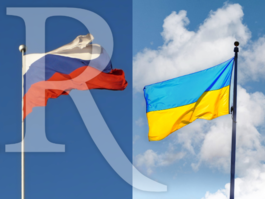When the Warmest in History Isn't
A Commentary By Debra J. Saunders
Here's another reason why people don't trust newspapers. When science reporters write about, say, hormone therapy or drinking red wine, they report on studies that find that hormones or red wine can be good for you, as well as studies that suggest otherwise. Any science involving complex organisms is rarely black and white.
When it comes to global warming, newspapers play up stories that reinforce the prevalent the-sky-is-falling belief that global warming is human-caused and catastrophic. But if a study or scientist does not portend the end of the world as we know it, it rarely rates as news.
In that spirit, many papers (including The Chronicle) have reported on a UC San Diego science historian who reviewed 928 abstracts of peer-reviewed articles on global warming published between 1993 and 2003, and concluded, "Remarkably, none of the papers disagreed with the consensus position."
Over 10 years, not one study challenged the orthodoxy -- does that sound right to you? If that were true, it would strongly suggest that, despite conflicting evidence in this wide and changing world, no scientist dares challenge the politically correct position on the issue.
No wonder, David Bellamy -- an Australian botanist who was involved in some 400 TV productions, only to see his TV career go south after he questioned global warming orthodoxy -- wrote in The Australian last week, "It's not even science anymore; it's anti-science." Bellamy notes that official data show that "in every year since 1998, world temperatures have been getting colder, and in 2002 Arctic ice actually increased." Exhibit B: Richard S. Lindzen, the MIT Alfred P. Sloan Professor of Atmospheric Sciences, recently wrote, "There has been no warming since 1997 and no statistically significant warming since 1995."
Such findings rarely are reported, even as, Marc Morano, communications director for the Republicans on the Senate Environment and Public Works Committee told me, "Scientists keep coming out of the woodwork" to challenge the so-called consensus. "It's almost like a bandwagon effect."
The Global Warming Petition Project urges Washington to reject the Kyoto international global warming pact as there is "no convincing scientific evidence that human release of carbon dioxide, methane, or other greenhouse gases is causing or will, in the foreseeable future, cause catastrophic heating of the Earth's atmosphere and disruption of the Earth's climate." So far, The Politico reports, more than 31,000 scientists have signed it.
The latest skirmish in the global warming war -- barely reported in America -- occurred after two bloggers found that the NASA Goddard Institute for Space Studies data wrongly cast this October as the warmest in recorded history. It turns out that the mistake was due to an error that wrongly tapped September temperature records from Russia. Christopher Booker of The Sunday Telegraph of London found the mistake "startling" in light of other contrary climate statistics, including National Oceanic and Atmospheric Administration findings of 63 local snowfall records and 115 lowest-ever temperatures for the month.
In an e-mail, Goddard researcher Gavin Schmidt explained, "The incorrect analysis was online for less than 24 hours." (Thank bloggers Anthony Watts, an American meteorologist, and Canadian computer analyst Steve McIntyre for catching the mistake.) The error occurred because a report "had the wrong month label attached. There is quality control at NOAA and GISS but this particular problem had not been noticed before and the existing QC procedures didn't catch it. These have now been amended."
As for the snowfall records and low temperatures cited by Booker, Schmidt chalked them up to "cherry picking" data. He added, "Far more important are the long-term trends."
Now, honest mistakes happen -- even in high-powered, well-funded research facilities. Just last year -- again thanks to the vigilance of Watts and McIntyre -- Goddard had to reconfigure its findings and recognize 1934 -- not 1998, as it had figured -- as the hottest year on record in American history.
Alas, it is hard to see Goddard as objective when its director, James Hansen, testified in a London court in September in support of six eco-vandals. A jury then acquitted the six Greenpeace activists on charges of vandalizing a British coal-fired power plant based on the "lawful excuse" defense that their use of force would prevent greater damage to the environment after Hansen predicted the one Kingsnorth plant could push "400 species" into extinction.
Of course, he could be wrong.
COPYRIGHT 2008 CREATORS SYNDICATE, INC.
See Other Political Commentary
See Other Commentary by Debra J. Saunders
Views expressed in this column are those of the author, not those of Rasmussen Reports.
Rasmussen Reports is a media company specializing in the collection, publication and distribution of public opinion information.
We conduct public opinion polls on a variety of topics to inform our audience on events in the news and other topics of interest. To ensure editorial control and independence, we pay for the polls ourselves and generate revenue through the sale of subscriptions, sponsorships, and advertising. Nightly polling on politics, business and lifestyle topics provides the content to update the Rasmussen Reports web site many times each day. If it's in the news, it's in our polls. Additionally, the data drives a daily update newsletter and various media outlets across the country.
Some information, including the Rasmussen Reports daily Presidential Tracking Poll and commentaries are available for free to the general public. Subscriptions are available for $4.95 a month or 34.95 a year that provide subscribers with exclusive access to more than 20 stories per week on upcoming elections, consumer confidence, and issues that affect us all. For those who are really into the numbers, Platinum Members can review demographic crosstabs and a full history of our data.
To learn more about our methodology, click here.



